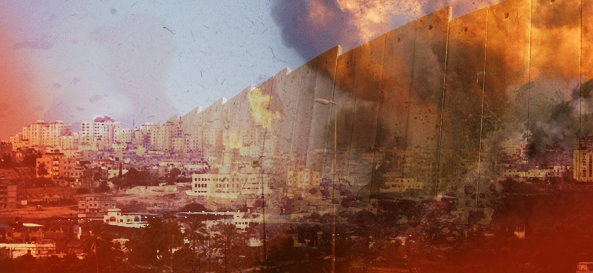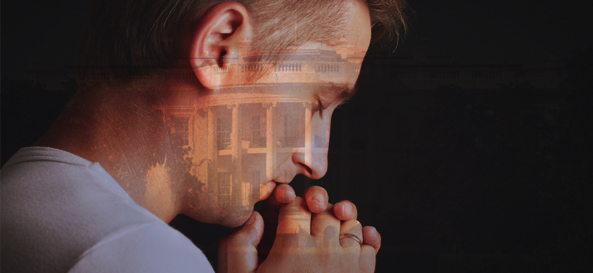
If there was any precarious truce left standing between Israel and Hamas since the last major conflict over the Gaza strip four years ago, it has been destroyed in the past few days as rockets and air strikes have been launched from both sides.
Grave casualties and injuries continue to mount as the current conflict between Gaza and Israel remains unresolved. 100 Palestinians have been killed and hundreds more injured, many of whom are women and children, as the Gazan population lives under a blanket of airstrikes. Israel has experienced three fatalities and 60 injuries while citizens try to move forward in everyday life enveloped in the anxiety and fear of pending rocket assault. All this as has led to a point today where Egypt has stepped in to mediate a potential cease-fire between Hamas and Israel, but the final decision has yet to be made.”
And as the conflict and many human lives hang in the balance, my heart is heavy.
Through my work with The Global Immersion Project, I have spent a significant amount of time over the years cultivating relationships among both Israelis and Palestinians as we partner together in cultivating a narrative of reconciliation. As is often the case when we approach a people or place with the hopes of being/bringing the needed change, I have been the one most changed by my friends and colleagues who reside in the Middle East. Behind so many of the subconscious stereotypes and prejudices I had acquired earlier in my life I began to experience the richness of friendship and brotherhood among people I had previously “known” only through the latest sound bite.
From Orthodox Jewish Rabbis to Christian Palestinian scholars to Muslim Palestinian leaders teaching the way of nonviolence, these are my friends, brothers, sisters and partners.
When my social media outlets began filling up with messages of fear, bloodshed and mourning my heart broke not only for a war half way across the globe, but for my friends. My teachers. My partners.
A Jewish Israeli friend wrote, “Siren in Tel Aviv. Just spoke to my father from the shelter.”
My Christian Palestinian brother shared multiple laments, “My friends in Gaza’s latest status update: “My Lord! This is enough! What is this?”
“Lord protect us. What is this? Terror terror.” “The land is shaking.”
While many of these individuals are currently in immediate physical threat, a greater pain for them is seeing the seeds of violence being sown in the soil that they have tireless turned over for the sake of reconciliation.
Was all their work worth it or does this mean it was all-pointless and that there really is no hope?
My heart not only breaks for my friends in Israel and Palestine, but it breaks because of the hateful stereotyping, racism and violent response being disseminated by Christians as they watch the news unfold and enter the discussion.
As followers of the pro-people Jesus, is this best we can do? Is that a reflection of the Christian hope that was brought about by and through the acts of the Suffering Servant? Have we lost our imagination that leads to the participating in the restorative mission of God for the cosmos?
Friends, we can do better. We must do better.
How then shall we respond?
Grieve the Loss of Life
It is easy to look at escalating death tolls as numbers that are simply a consequence of war rather than the tragic loss of precious life. Whether Israeli or Palestinian, each are part of the human family made in the Image of God. We cannot become numb to the things that should bring us to our knees. Allow yourself to feel pain on behalf of the mothers who have lost their children and the children who have lost their parents.
Listen, Learn and Be Still
We would do well to slow down and listen to the stories of others before telling their story for them. Those that have stepped foot in other cultures—whether domestic or international—know how much we have to learn as products of each of our unique upbringings and worldviews. Slow down, listen, learn and be still before jumping to words or actions that may do more harm than good.
See Common Humanity, Before Political and Religious Differences
We all inherently know that the diversity of humanity isn’t going to allow for us all to perfectly agree on politics and religion. Rather than look at people through the lens of politics or religion, look at them through the lens of a shared humanity. All humans were made in the image of God. When we see Jesus in the eyes of “the other” it is much harder to hate, hurt and demean.
Pray
Pray for the healing of others, from all nations and religions. Pray for peace in places of conflict. Seek forgiveness for our blind prejudice. Ask for courage for those who promote Kingdom values. Pray for new friendships to be cultivated among former enemies. Pray for your enemies.
Ask Hard Questions
How might have my political or social involvement perpetuated or sparked damaging consequences—in thought or action? Am I an objective observer or are there ways I can be part of the problem or part of the restoration? Is the form of Islam or Judaism that is being portrayed in the media an accurate form of faithful Islam/Judaism or a simply an ideological counterfeit?
Expand Your News Sources
It’s not the distance that keeps Westerners from objective news coverage, it’s polarizing political, social and financial realities that surround this region. There is no more critical time to be savvy in how you listen and learn from the media. Do not listen to only one source, but tune into multiple sources for various perspectives. Even better, hear firsthand accounts from friends or trusted sources who are living in both Israel and Palestine. This is a complex issue that requires holding multiple narratives in tension.
Live a Narrative of Compassion
Those of us who know and have experienced real life with the people who are now being labeled “terrorists” must bring to the table the disconnect between perception and reality. We must acquire the resources that will help us better step into this situation with eyes for common humanity, justice and the heart of God. We must live into the narrative God desires for humanity, which inevitably leads us to care for the hurting—whether grieving families who have lost loved ones, individuals who are targets of hate or the stereotyping happening in your neighborhood because of events halfway across the globe.
Geographical distance does not dismiss us from human compassion for those who are suffering. Let’s begin this process of compassionate and Christlike response now.






















